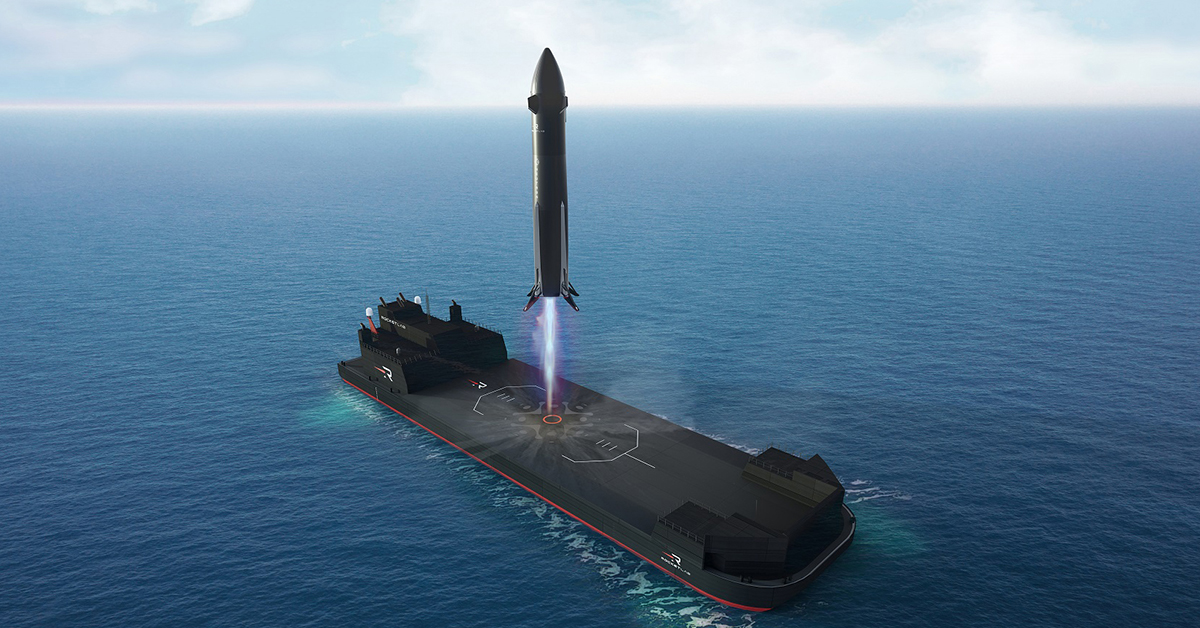Rocket Lab USA of Long Beach, Calif., has announced the acquisition of a barge from New Orleans-based Canal Barge Company that will serve as an ocean landing platform for rockets associated with the company’s Neutron missions.
The barge, named “Return On Investment,” will undergo modifications to include autonomous ground support equipment for capturing and securing Neutron rockets, black shielding to protect equipment during landings and station-keeping thrusters for precise positioning. Construction on the barge will take place this year, with Return On Investment entering service in 2026. The barge, originally named Oceanus, is a deck barge built in 2010 that measures 200 feet by 105 feet, with a 25-foot depth and 21-foot maximum draft.
“We’re working hard to bring Neutron online with one of the fastest development schedules in history for a new rocket because we know medium-lift launch opportunities are limited, and space access is being stifled,” said Sir Peter Beck, founder and CEO of Rocket Lab. “Neutron’s debut launch planned for later this year will help to ease that bottleneck, and our new landing platform will open space access even further by enabling even more mission opportunities that require maximum Neutron performance.”
Rocket Lab plans to execute the first launch of Neutron the second half of this year.
The Neutron rocket is a reusable carbon composite medium-lift vehicle intended to provide single and multi-satellite constellation deployment, provide high-assurance national security missions and deliver cargo to various Earth orbits, as well as lunar and interplanetary exploration, the company said in a news release. The system can carry payloads up to 33,000 pounds.
Rocket Lab will have the option of two landing profiles for Neutron, depending on mission requirements. The company will offer Return To Launch Site (RTLS) missions, where the first stage of Neutron lands at its Rocket Lab Launch Complex 3 in Virginia. The Down Range Landing (DRL) maneuvers will employ sea landings aboard Return On Investment.
With the first launch of its debut system, Electron, in 2017, Rocket Lab to date has conducted 60 launches from a trio of launch pads, deploying 210 third-party satellites and four Rocket Lab satellites in the process. Customers include NASA, the U.S. Space Force, DARPA, Canon, unseenlabs, Astro Digital and Black Sky.
Rocket Lab is the latest private space launch company to employ barges or ships to land rockets at sea, joining SpaceX and Blue Origin. The Spaceport Company also plans to use a barge for at-sea launches.
————
Photo caption: An illustration of a retrofitted barge that Rocket Lab will use to land rockets at sea. (Photo courtesy of Rocket Lab)




